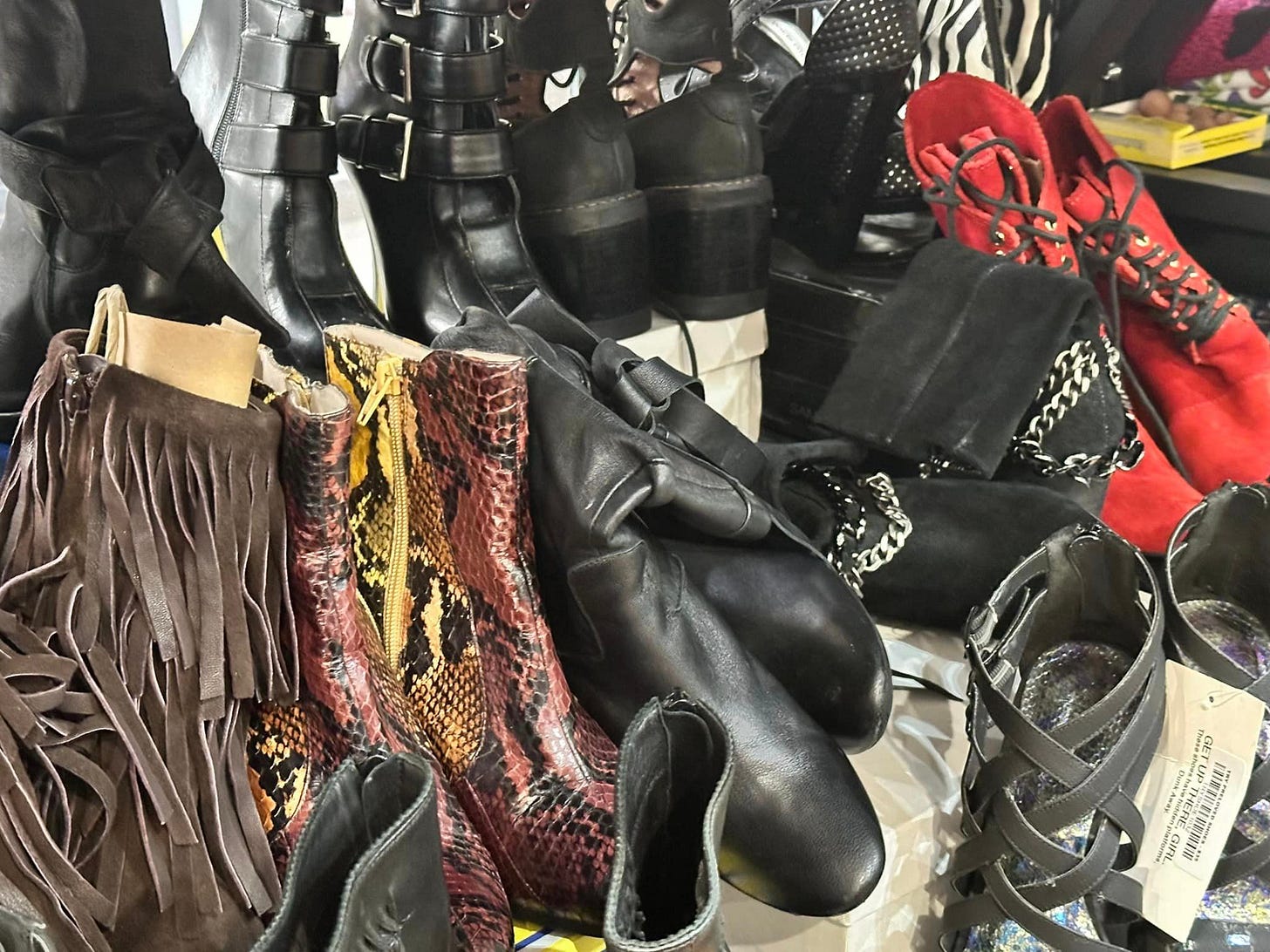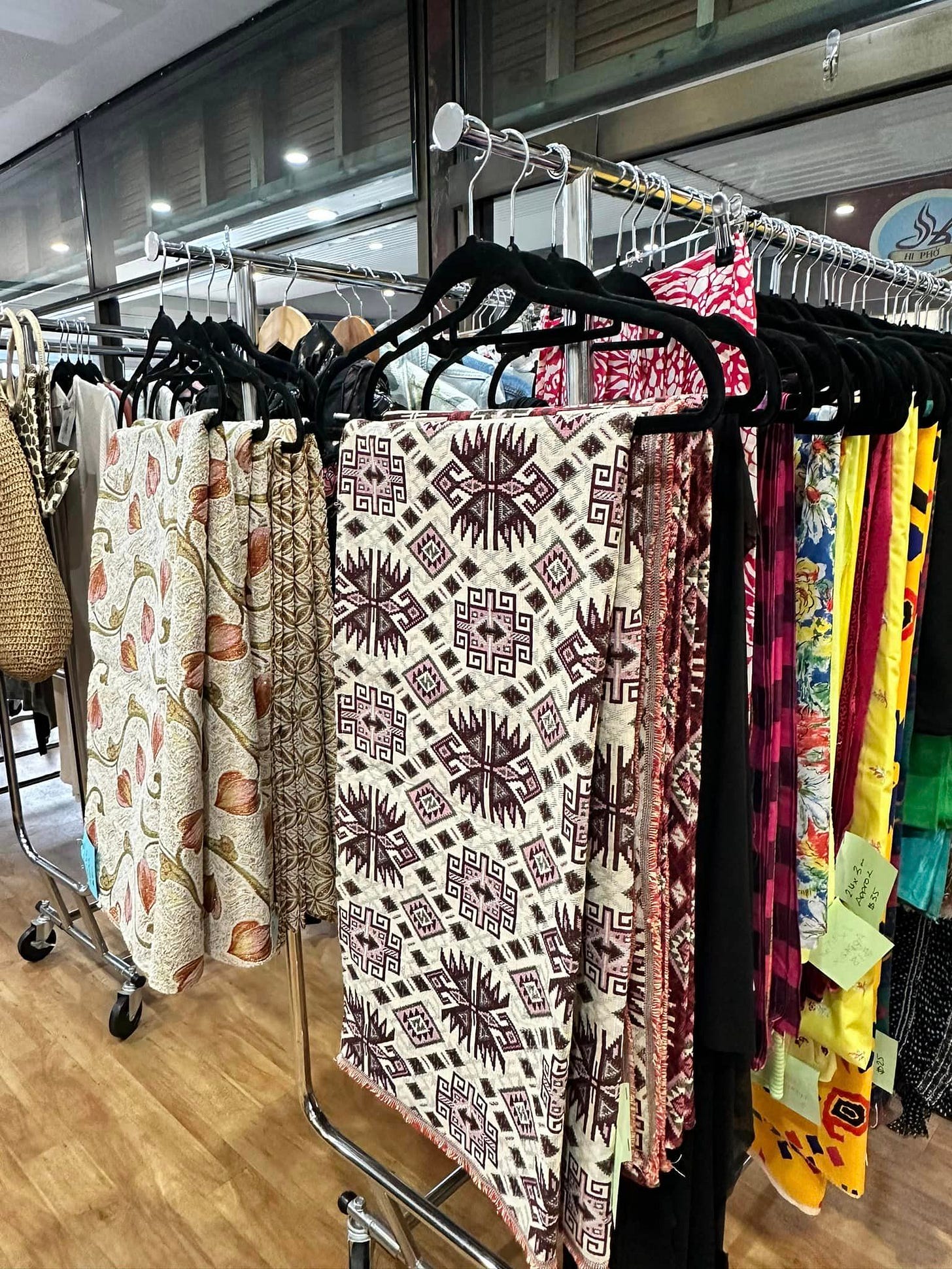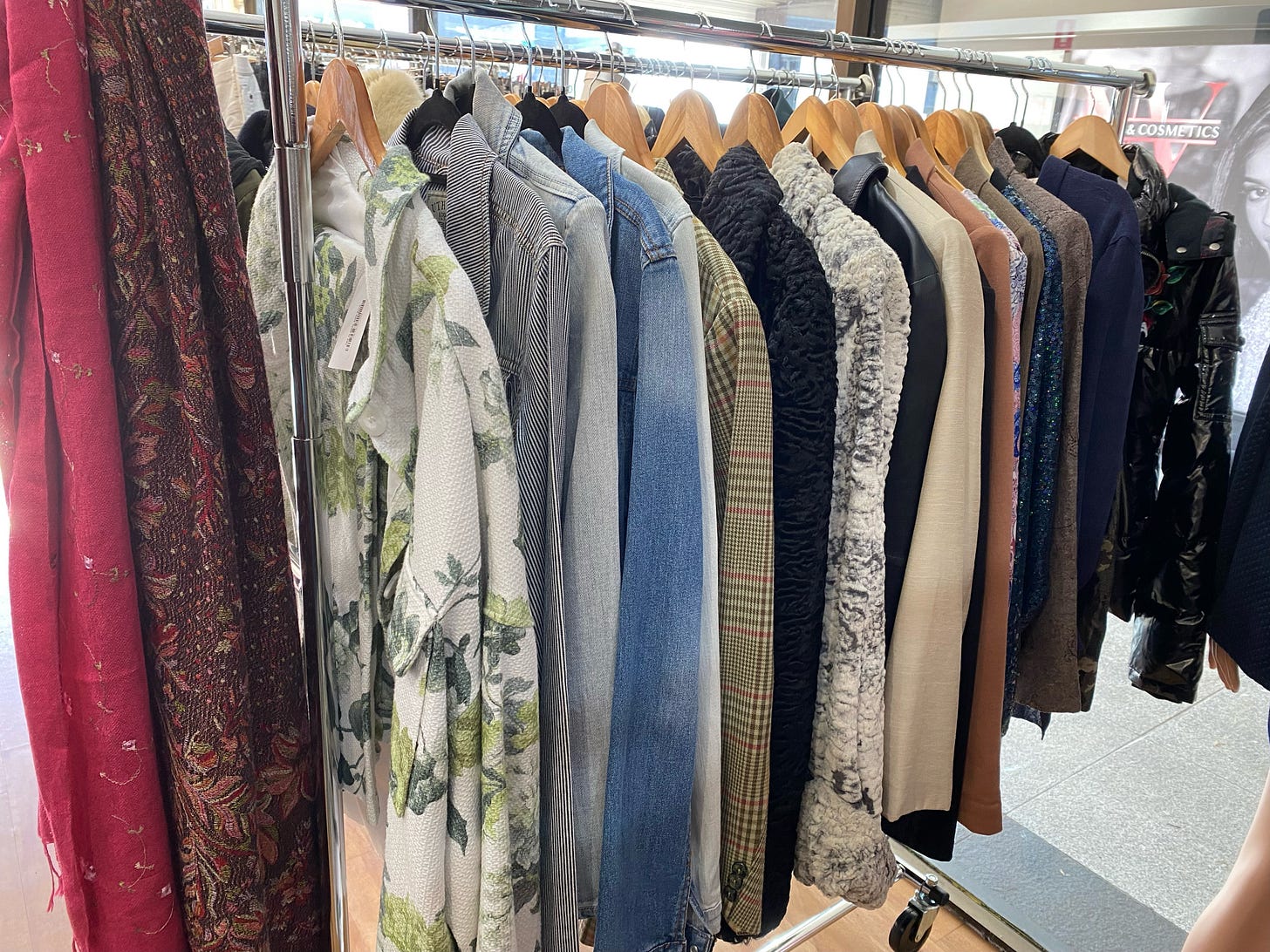In an era defined by environmental challenges and heightened social consciousness, the decisions we make as consumers have never been more critical. The support for small businesses like Trashy, which is dedicated to textile and leather reuse and promoting a circular economy, is not just a commercial choice but a meaningful stance on environmental conservation and community development. Buying from Trashy isn't merely a transaction—it's an investment in fostering a sustainable, fair, and prosperous future.
Environmental Stewardship through Waste Reduction
One of the most pressing environmental issues today is the immense waste generated by the consumer goods sector, particularly in the fashion industry. Trashy confronts this issue head-on by diverting textiles and clothing that would otherwise end up in landfills. Australia has now surpassed the US as the largest consumer of textiles per person, according to the latest research from the Australia Institute. That’s about 56 new clothing items per year. More than 200,000 tonnes of clothing end up in landfill each year, the equivalent weight of almost four Sydney Harbour Bridges, where they take decades to decompose, releasing methane and other harmful gases.
Supporting Trashy means actively participating in reducing this waste. Although a new, small enterprise, each purchase from Trashy repurposes these materials, directly decreasing the volume of waste and helping to minimise the environmental footprint associated with producing new textiles. Currently, Trashy can only make a small impact, nevertheless, together with communities and other like-minded businesses, the ecological benefit of this cannot be overstated — reducing landfill waste conserves land and reduces pollution, contributing to cleaner air and water.
Advocating for Upcycling and Reuse
Trashy's core mission revolves around upcycling and reuse, principles that challenge the traditional 'take-make-waste' model of production. Upcycling not only prevents waste but also requires less energy compared to manufacturing new products. This process significantly lowers the demand for new raw materials, thus conserving natural resources and reducing carbon emissions.
Did you know that the average person only wears 40% of their clothes? While donating clothes to charity is a step in the right direction, charities often can’t resell the items in Australia. It is estimated that only 15% are resold within Australia, and the rest are sent to landfill or overseas to developing nations
By supporting Trashy, consumers help advocate for an economic model that sees the value in what is already available. This approach not only conserves resources but also showcases innovation in product development while achieving business objectives. Trashy’s diverse range of products—from pre-loved clothing to rescued vintage textiles — illustrates that style and quality do not have to be compromised for sustainability.
Transforming Consumer Culture
Another core principle of Trashy is to reshape how society perceives material value. In a culture where newness often equates to desirability, Trashy challenges this notion by demonstrating the worth of preloved items, and remnant textiles. Each item in the store tells a story, encouraging consumers to see beyond superficial trends and recognise the deeper value of items that carry history and character.
Devaluing resources is what leads to waste. A resource that is not valued is perceived as not worth paying money for, and as a consequence, is easily discarded. But consider this scenario. A creative individual finds some fabric remnants and uses them to create a beautiful garment, one that would not be out of place on a rack in a high-fashion clothing store. It would be hard to justify why this garment made of fabric remnants is worth less than a similar garment made from a new bolt of fabric. Trashy celebrates the inherent value in so-called textile ‘waste’ and is passionate about promoting this to the community.
Supporting Trashy helps promote a broader cultural shift towards conscious consumerism. Supporting Trashy influences friends and family to think about what they buy, which helps foster a consumer base that values quality over quantity, longevity over disposability, and sustainability over fleeting convenience.
Changing consumer culture is challenging for many reasons, a few being -
Cost: The value of an item is often reflected in its cost. Typically, consumers have preconceived ideas about pre-loved clothes, fabric remnants and leather offcuts as not as valuable as new clothes or textiles. However, fabric remnants and offcuts are just the unused part of a larger piece, and so have the same value as it did before it became a remnant. The value of these textiles is not in their size but in their near-endless possibilities to be transformed into almost anything, only limited by imagination.
Preloved clothes, particularly vintage clothes, are made exceptionally well - the older the clothes the better made - and last longer and are more attractive and of higher quality than fast fashion items. Preloved clothes and textile remnants are indeed valuable. In fact, Trashy sees these rescued items as more valuable because they have been stopped from going to landfill, and they offer opportunities for creative minds to bring life to these resources.
Greenwashing: Some organisations exploit the trend towards sustainability by making misleading claims about their products’ environmental or ethical credentials. This practice, known as greenwashing, can undermine genuine efforts towards sustainability and mislead well-intentioned consumers (Parguel et al., 2015). This leaves consumers confused, angry and distrustful of claims about sustainable business practices.
The Australian Fashion Council is leading a scheme called Seamless which aims to improve design, recovery, reuse, and recycling in the Australian fashion industry over the next 12 months or so. Resources found at Trashy make a positive contribution towards sustainable environmental and economic goals as all our items are rescued, carefully curated and promoted for creative reuse.
Empowering Communities and Promoting Fair Practices
Trashy's commitment to supporting women in business and advocating for the circular economy has profound social implications. By empowering women, Trashy not only promotes gender equality but also catalyses community development. Studies have shown that empowering women leads to broader economic benefits, including increased prosperity and social cohesion (The Australian Small Business and Family Enterprise Ombudsman, 2021).
Furthermore, by advocating for the circular economy, Trashy supports economic practices that are not only environmentally sustainable but also economically inclusive. The circular economy model promotes a system of reuse that creates job opportunities, encourages local entrepreneurship, and fosters a community of innovators and creators (Ellen Macarthur Foundation, 2024).
What sets Trashy apart from similar enterprises is that we work with and support people in the community and businesses to help reduce the environmental footprint generated from their textile waste. We do this by buying textiles and clothing they no longer use. By putting a few dollars into the pockets of individuals and businesses that would have thrown out their preloved clothes and textile ‘waste’, Trashy is supporting sustainable lifestyles and business practices while contributing to the circular economy and helping other businesses do the same This also showcases how sustainability can be profitable, and aligned with community values.
Supporting Trashy transcends traditional consumerism. It is an active engagement in promoting environmental sustainability, cultural transformation, community development, and economic inclusivity. Each purchase from Trashy is a step towards a future where businesses are not just profit-driven but are also custodians of societal and environmental well-being.
By choosing to support Trashy, consumers are not just buying products; they are endorsing a philosophy, participating in a movement, and contributing to the shaping of a world that values sustainability, fairness, and prosperity. As we look forward, it is clear that supporting small, mission-driven businesses like Trashy is not merely beneficial—it is essential for the well-being of our planet and our societies.
Trashy is at shop 4, 92-112 Henry Street (Henry Street Plaza), Penrith
More information
The Australia Institute. (29 May 2024). Australians revealed as world’s biggest fashion consumers, fuelling waste crisis [media release].
The Australian Small Business and Family Enterprise Ombudsman. (25 June 2021). Women recognised as key drivers of business growth on World MSME Day (Media release).
Clean up Australia, Fast Fashion
Ellen Macarthur Foundation. The circular economy in detail, accessed 15 May 2024
Parguel, B., Benoît-Moreau, F., & Larceneux, F. (2015). "How sustainability ratings might deter 'greenwashing': A closer look at ethical corporate communication." Journal of Business Ethics, 131(1), 15-28.












